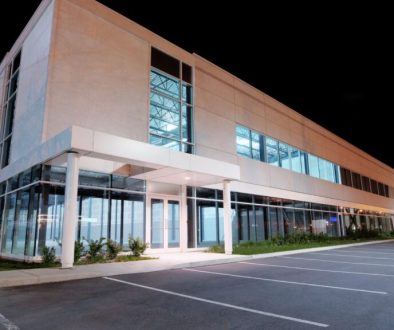How Licensing Requirements Can Stall Acquisitions
Licensing requirements can significantly delay the acquisition process, creating obstacles that could jeopardize business growth and success.
How Licensing Requirements Can Stall Acquisitions
Navigating the world of business acquisitions can be a complex journey, particularly when licensing requirements come into play. These regulations, crucial for ensuring operational legality and safety, can inadvertently create significant delays in the acquisition process. This blog post explores how these licensing hurdles can stall acquisitions, drawing on real-world examples and expert insights to provide a comprehensive understanding of this critical aspect of business transactions.
Introduction
Business acquisitions represent a pivotal strategy for growth and expansion. They enable companies to diversify their offerings, increase market share, and enhance operational efficiencies. However, the acquisition process is often mired in regulatory complexities, with licensing requirements frequently emerging as a significant roadblock. From needing industry-specific permits to navigating state and federal regulations, the impact of these requirements can be substantial.
In this article, we will delve into the various ways in which licensing requirements can stall the acquisition process. We will discuss the types of licenses that may be required, the complexities involved in obtaining them, and the strategies businesses can adopt to navigate these challenges effectively.
Understanding Licensing Requirements
- Licensing requirements can vary significantly by industry, location, and type of business. These licenses are often mandated by government entities at various levels, including local, state, and federal agencies.
- For example, a restaurant acquisition may require health department permits, liquor licenses, and business operation licenses. In contrast, a technology firm may need to secure intellectual property licenses and ensure compliance with data protection regulations.
- According to a report by the National Federation of Independent Business, over 80% of small business owners feel that regulatory compliance is a critical concern when considering acquisitions. This underscores the importance of understanding the licensing landscape before embarking on an acquisition journey.
- A notable example is the acquisition of a healthcare facility, which is subject to rigorous state and federal licensing requirements. These can include certifications from health departments, compliance with Medicare and Medicaid regulations, and various safety inspections. The timeline for these approvals can extend for months, delaying the entire acquisition process.
The Impact of Licensing Delays on Acquisition Timelines
- Delays in obtaining necessary licenses can significantly extend the acquisition timeline, often pushing back negotiations and closing dates.
- The process can be further complicated by the necessity for due diligence, as potential buyers must ensure that the target business holds all required licenses and permits before proceeding with the acquisition.
- For instance, if a buyer discovers during due diligence that a target company lacks a critical permit, this may lead to renegotiations, additional expenses, or even the decision to abandon the acquisition altogether.
- A case study highlighting this issue involved a technology startup aiming to acquire a smaller firm with proprietary software. During the due diligence process, it was revealed that the smaller firm had not secured the necessary licensing for its software. The resulting delays not only stalled the acquisition but also prompted the larger firm to reassess the value of the deal, complicating negotiations further.
Strategies to Navigate Licensing Challenges
- Businesses can adopt several strategies to mitigate the impact of licensing requirements on acquisitions. Proactive planning and thorough research are paramount.
- Before initiating an acquisition, conducting a comprehensive analysis of the target company’s licensing status can help identify potential issues early in the process. This may include verifying existing licenses, understanding any forthcoming renewals, and assessing the implications of any lapses in licensing.
- Engaging with legal and regulatory experts can also provide invaluable insights. These professionals can help navigate the complex landscape of licensing requirements, providing advice on compliance and any necessary steps for securing needed permits.
- Establishing strong relationships with regulatory agencies can facilitate smoother communication and potentially expedite approval processes. For example, businesses that maintain open lines of communication with local health departments may find it easier to obtain necessary permits for food service operations.
Common Licensing Challenges in Various Industries
- Different industries face unique licensing challenges that can hinder the acquisition process. Understanding these nuances is essential for businesses exploring acquisitions.
- In the healthcare sector, acquiring a facility often requires navigating a labyrinth of federal and state regulations. Licensing delays can arise from the need to verify compliance with stringent healthcare standards, conduct inspections, and secure approvals from multiple governing bodies.
- The financial services industry also experiences licensing challenges, particularly regarding compliance with regulations set forth by agencies such as the Securities and Exchange Commission (SEC) and the Financial Industry Regulatory Authority (FINRA). Delays in securing necessary waivers or approvals can stall acquisitions and disrupt operations.
- In the construction industry, acquiring a contractor’s license can be a protracted process, especially when multiple jurisdictions are involved. Buyers may face obstacles in confirming the legitimacy of existing licenses or in obtaining new ones, leading to potential delays in project timelines.
Best Practices for Managing Licensing in Acquisitions
- To avoid the pitfalls associated with licensing requirements, businesses should implement best practices that streamline the acquisition process.
- First, creating a checklist of necessary licenses and permits before beginning the acquisition can help ensure that no critical steps are overlooked. This checklist should be tailored to the specific industry and location of the target business.
- Second, conducting a pre-acquisition audit of the target company’s licensing status can help identify potential issues and allow for proactive resolutions. This audit should assess not only current licenses but also any licenses that may be required in the future, depending on growth plans and operational changes.
- Third, leveraging technology can improve the efficiency of the licensing process. Many companies are now utilizing software solutions to manage compliance and track licensing statuses, which can help ensure that all requirements are met in a timely manner.
- Lastly, fostering a culture of compliance within the organization can aid in minimizing licensing issues. By prioritizing regulatory adherence and providing training to staff on legal requirements, businesses can build a more robust framework for managing licensing challenges.
The Role of Legal Counsel in the Licensing Process
- Engaging legal counsel early in the acquisition process is a critical step in navigating licensing complexities.
- Legal professionals specializing in business acquisitions can provide essential insights into the requirements specific to the target industry and jurisdiction. Their expertise can help identify potential licensing challenges that may not be immediately apparent to buyers.
- Furthermore, legal counsel can assist in negotiating terms related to licensing in the acquisition agreement. This may include contingencies based on the successful transfer of licenses or guarantees regarding the validity of existing permits.
- A real-world example of this involves a buyer looking to acquire a chain of retail stores. By involving legal counsel early in the negotiation phase, the buyer was able to include clauses in the purchase agreement that addressed potential licensing issues, protecting their interests should any complications arise during the transition.
Conclusion
Licensing requirements can pose significant challenges during the acquisition process, often resulting in delays that impact timelines and negotiations. Understanding the complexities of these requirements, conducting thorough due diligence, and implementing best practices can help businesses navigate these hurdles effectively.
As the business landscape continues to evolve, recognizing the importance of compliance and proactive planning will play a crucial role in successful acquisitions. For companies looking to expand their operations, being prepared to tackle licensing challenges head-on will ultimately contribute to smoother transitions and sustained growth.
If you are considering an acquisition, we encourage you to explore our services and contact us today for expert assistance in navigating the complexities of business acquisitions.



